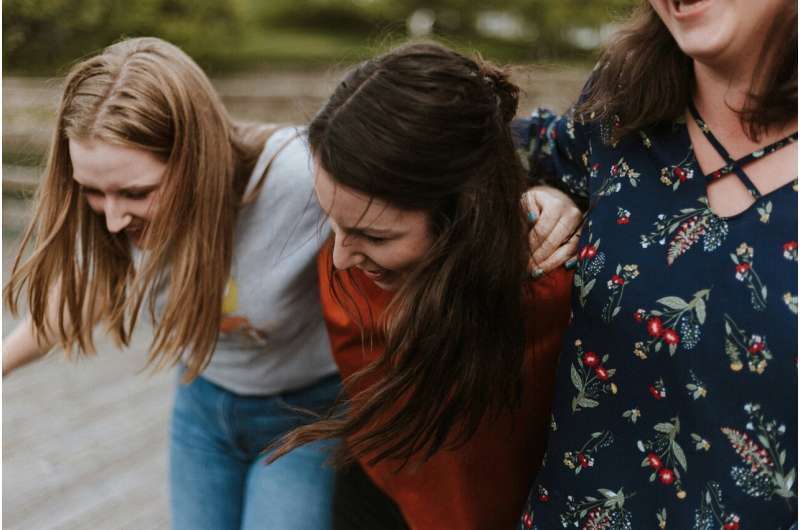This article has been reviewed according to Science X's editorial process and policies. Editors have highlighted the following attributes while ensuring the content's credibility:
fact-checked
trusted source
proofread
How play can help break the cycle of violence

In Canada, only 1 in 5 children who need mental health services receive them. Clinical and psychiatric programs, while effective, can involve long wait times and prohibitive costs. A new study involving McGill University researchers points to a solution to fill the gap: a low-cost, community-based program that has seen inspiring results.
Children exposed to violence are known to face higher risks of violence in the future, either as perpetrators, survivors, or witnesses. LOVE Quebec works with youth who have experienced violence to help break the cycle. In a previous study of its after-school program, participants reported an 80 percent decrease in violence in their lives and increased retention in school while also promoting their overall mental health more broadly.
To unlock the key to its success, researchers from McGill, Université du Québec à Montréal, and Université de Sherbrooke studied LOVE's Media Arts Program (MAP) in two Quebec urban high schools between 2018 and 2019. The program involves photography, writing, and poetry, among other activities.
Playfulness: The perfect prescription?
In the face of the participants' profound and challenging life circumstances, the results indicate that adopting a playful approach is instrumental in fostering their willingness to share their experiences.
"There's an important element of playfulness, which is modeled by LOVE staff," says Franco Carnevale, a professor at McGill's Ingram School of Nursing and the study's principal investigator. "The outcome is an extraordinary non-clinical approach to mental health promotion and wellness that helps young people without making them feel like patients."
The researchers propose that play sparks a positive cycle by reducing stress levels, allowing youth to change their relationship with vulnerability—by expressing it in a safe space.
The findings build upon the team's previous study about LOVE's MAP after-school program. The mounting body of evidence demands a closer look at how low-cost community programs can help elicit the voices of children, whose experiences may be difficult to understand.
"I think we should see youth well-being as a public health priority with more active government support and more widescale mobilization," explains Carnevale. "LOVE provides a highly impactful model, and it might just be the perfect prescription for some of the mental health challenges faced by youth today."
The findings are published in the journal Children & Society.
More information: Nadia Hausfather et al, "Time to be free": Playful agency in LOVE's in‐school programme for at‐risk youth, Children & Society (2023). DOI: 10.1111/chso.12803




















